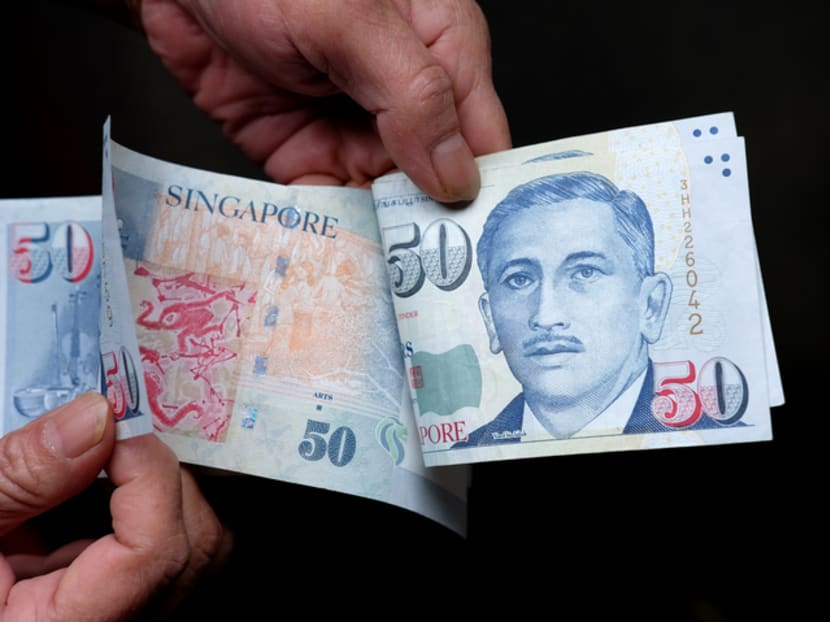Govt proposes legislation on debt collection, amid rise in police reports against collectors who ‘caused alarm and nuisance’

- With a "high number" of police reports made against debt collectors in recent years, new legislation is being proposed to regulate them
- There are now no regulations or laws governing debt collection
- Part of the proposed legislation includes requiring all debt collection companies and their workers to be licensed
- They must also not "display or use any physically threatening words, behaviour, writing, sign or visible representation"
- The public may give feedback on the proposed legislations from June 15 to 29
SINGAPORE — The Government is looking to introduce laws to regulate debt collection activities in Singapore, following a "high number of police reports" against debt collectors who act "in a manner that caused alarm and nuisance to members of the public" in the past few years.
Announcing this in a statement on Wednesday (June 15), the Ministry of Home Affairs (MHA) noted that there were 272 police reports on debt collection harassment last year, up from 134 reports in 2015. In 2018, a peak of 590 police reports were made on debt collection activities.
MHA, which has started a public consultation on the proposed laws, said that there are no existing regulations or laws around debt collection activities.
Among other things, a debt collector must verify that the subject of their activities is the debtor and not "display or use any physically threatening words, behaviour, writing, sign or visible representation".
Another proposal is to introduce a licensing and approval regime for debt collection companies and their workers.
“As these parties are most likely to account for the majority of the problematic debt collection conduct, the tightest requirements will be applied on them,” MHA said.
This includes a screening process by the police and it is “similar to the application process for many other regulatory regimes”.
The police will be given the powers to administer and enforce the licensing regime — such as granting and or refusing licence applications, modifying licensing and approval conditions, and suspending or revoking licences or approvals.
DEFINING DEBT COLLECTION ACTIVITY
The proposed legislation includes defining debt collection activity as “any activity undertaken to collect or attempt to collect any debt, but excludes the serving or attempting to serve any legal process or letter of demand on any person in connection with the enforcement of any debt”.
This will apply to both the collection of debt owed to one’s company and the collection of debt owed to others, be it individuals or companies.
Under the proposed regulation, both physical and non-physical activities — such as making visits to a debtor’s workplace or residence and making phone calls to debtors — will be considered debt collection activities.
“The definition is scoped broadly to prevent errant debt collectors from finding ways to circumvent the regulations,” MHA added.
CLASS LICENSING
The proposed rules will not apply to:
- Law practice entities and insolvency practitioners that are already regulated
- Collections conduct by or on behalf of the Government
- Court-administered debt collection activities
“MHA recognises that debt collection is a legitimate activity that facilitates the fulfilment of financial obligations,” it said.
“However, in view of the increasing concerns, there may be a need to institute upstream regulatory interventions on the industry, to better manage the disamenities from such activities.”
One proposal made by MHA is to class-license companies that conduct debt collections extensively to recover debts owed to them but have primary commercial interests that are not debt collection.
“These types of business will be specified in the proposed legislation, and include business conducted by a licensed moneylender, bank, merchant bank or finance company,” it added.
Under this framework, companies that fall under the class licence will not need to apply for licensing or approval. However, they must comply with debt collection rules that are part of the proposal.
On its reasoning for the class licence approach, MHA said that a majority of police reports filed for debt collection harassment are against debt collection companies collecting debts on behalf of others, rather than companies collecting their own debts.
DEBT COLLECTION RULES
Among other proposed rules, a debt collector must not:
- Post or display any notices about a debt on a property, car or workplace that is not the debtor’s, or at a public place
- Continue any attempt to collect money or communicate with a person who has verifiable means to show that the debt is in dispute and the debtor wishes to settle the debt through other legal means, such as through court or mediation
The proposed legislation, which does not spell out potential penalties for flouting them, can be found online.
Members of the public may submit their views on the proposals from June 15 to 29 through an online form.











